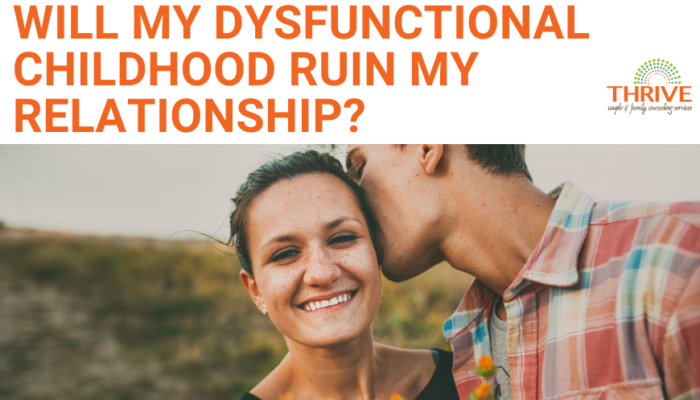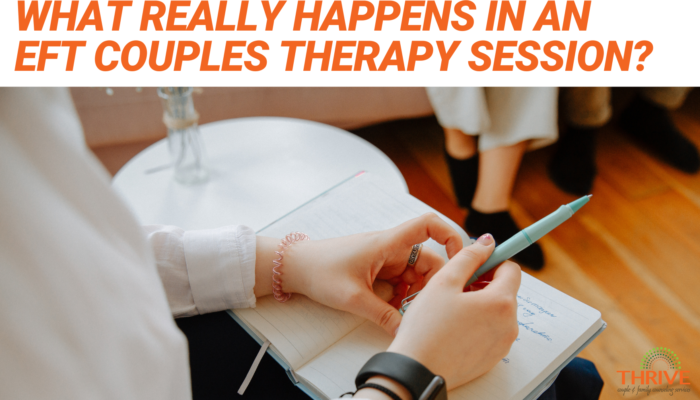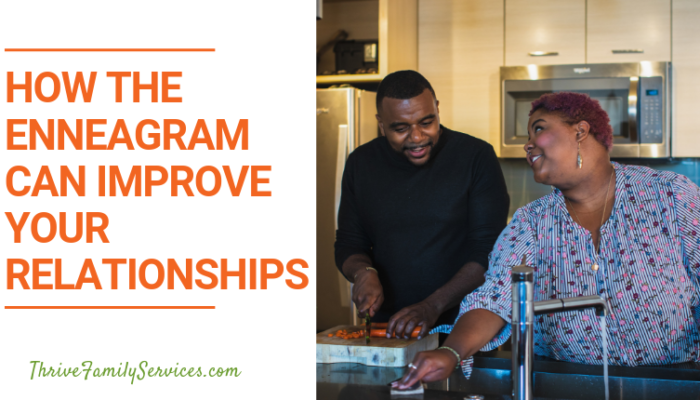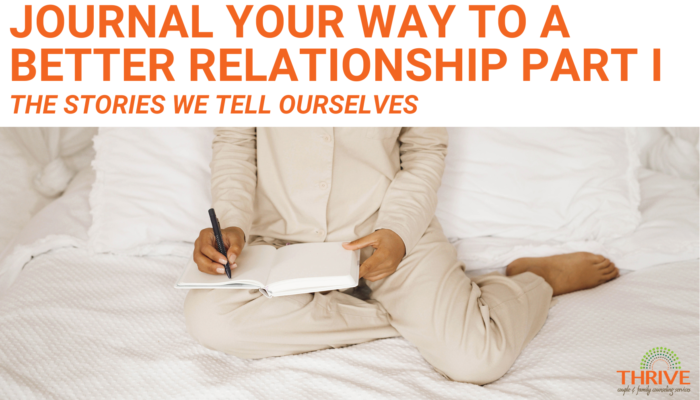Are you concerned your childhood experiences might have a negative impact on your adult relationships? The way you grew up can definitely have an effect on your romantic relationships, but it doesn’t necessarily have to be a negative one.
What is a dysfunctional childhood?
Family dysfunction is often played for a laugh on TV, but the pain of a difficult childhood can be devastating. If you grew up with a caretaker who struggled with addiction; had chaos, conflict, instability, lack of healthy emotional modeling, or instability; and/or experienced abuse or neglect, you may relate to the concept of a “dysfunctional childhood.”
Family dysfunction is trauma, often repeated. When you grow up experiencing trauma as normal, you might feel like you’ll never be normal or able to function in a relationship. You might worry that you’re destined to have unhealthy relationships or continue the cycle of abuse you experienced growing up.
What are coping strategies for a dysfunctional childhood?
When children are growing up, they develop strategies to feel safe in relationships for survival, and coping strategies when they don’t feel safe. This is an adaptive evolutionary response that helps babies get their needs met when they’re too little to fend for themselves.
Children feel safe when their caregivers are reliable, when their physical and emotional needs are met, and when they have structure and routine. These conditions are tough to find in dysfunctional families.
When dysfunction is present, it can be really hard to feel safe, so we naturally turn to finding ways to cope with the distress. Here are some common coping strategies we develop when experiencing a lack of safety or connection with our parents and caregivers:
Parentified Children
Sometimes, children who experience dysfunction growing up have to take on the role of caregiver themselves, because their needs aren’t being met by their actual caregiver. We describe a child who copes this way as a Parentified Child. This in and of itself can be traumatic and can show up later with struggles to recognize your own emotions and needs, or difficulty receiving help and affection because you had to learn to focus on your parents rather than yourself.
Kids are supposed to be kids – not standing in as substitute adults, and being forced into an adult role early can be confusing and lead to a disconnection with your own self.
Shutting Down and Numbing Out
Some kids learn that there is no point to expressing their emotions so they adapt by learning to hold them in. Perhaps the challenges were even more pronounced so that it simply wasn’t safe to express emotions.
A person with this emotional environment would need to figure out how to put their emotions away entirely, or get really good at hiding them. Often, these people grow up and tend to Withdraw in their relationships, and may not even consciously know they move away from their emotions and those of others.
Protestors and Boundary Pushers
Other children who experience dysfunction may get used to a lack of boundaries or adult oversight. These kids may be more rebellious or challenging because they don’t have a reliable caregiver at home. Perhaps you learned that you only got seen and responded to when you got big, loud, or broke rules. A person with this coping strategy might learn that the only way to feel loved and secure in relationships is to protest or force the attention from others through big gestures.
Again, these coping strategies are often learned so early, and needed to be used so frequently that they often become instinctual and are therefore NOT INTENTIONAL or even conscious.
What can I do about my dysfunctional childhood?
Even though the way we grow up can absolutely influence who we become as adults, that isn’t set in stone. We aren’t put on a certain relationship track as kids that we can’t move off of as we grow up.
Experiencing dysfunction in childhood doesn’t mean you’ll never have healthy relationships.
It’s possible that your childhood experiences can negatively impact your relationships, but it’s certainly not a guarantee. The best way to ensure that your dysfunctional childhood doesn’t influence your relationships is to start healing from it.
At our Centennial counseling office, we practice Emotionally Focused Therapy. Emotionally Focused Therapy, or EFT, is based on a humanistic experiential perspective. This means that we won’t pathologize your experience.
Instead, we will approach you and your relationship with empathy and look for the sound reasoning and meaningful emotion behind your behavior. In EFT, you are not the problem. The negative patterns you are stuck in may be causing difficulties, but there is absolutely nothing wrong with you.
EFT is also based on Attachment Theory, so we look to your childhood attachments to inform how you approach relationships today.
Studies have shown that folks from dysfunctional families feel more anxious than their peers about dating and relationships. Some people feel that they’re doomed to repeat the patterns they learned growing up, even if they don’t want to.
The truth is, you aren’t doomed to have terrible relationships if you had a dysfunctional childhood. There are three important steps to take to make sure that your dysfunctional childhood doesn’t negatively affect your romantic relationships: identifying the patterns, understanding their impact, and working with your partner.
How do I heal from my dysfunctional childhood?
Identify
When you grow up in a dysfunctional home, you have to adapt to the patterns that are around you to keep you safe. Maybe you learned that your caregivers weren’t reliable. Or perhaps conflict was the only time when emotions were expressed in your home, leading you to think that conflict is the only way to express yourself. Healing from the dysfunction means identifying these childhood patterns and changing them to ones that are more supportive.
We can’t begin to change our patterns if we don’t know that they’re there. Are there ways that you see your dysfunctional childhood experiences influencing your reactions? Do you feel like you can’t handle conflict or distressing emotions? Are you used to being the caretaker? Do you feel unsafe when you focus on your feelings? Exploring these ideas in a journal can help you gather your thoughts and spot patterns that you didn’t realize were there.
Understand the impact
How do your childhood experiences inform who you are today? What impact did your childhood have on the adult you are now? Do you have extreme reactions to relationship problems? Are there times where you feel the need to withdraw from your partner in times of conflict, or do you feel the need to hold tighter to them? Do you feel unworthy of love and affection because of the way you grew up?
These can be hard questions to answer. Working through these questions with a therapist who can help you pick up on patterns and cycles and teach you new ways to approach relationships may feel safer than going it alone. A therapist can also help you view these negative patterns as the problem, instead of feeling like there’s something wrong with you.
Work with your partner to understand how childhood patterns are showing up
Now that you’ve gathered your thoughts, identified the patterns from your childhood, and started to make sense of the impact that had on you, the next step is to loop in your partner. You’re also welcome to involve them before this point, but it may be easier to wrap your head around how to approach the conversation if you take some time to prepare first.
You don’t have to talk about every trauma you experienced growing up, but giving your partner a general idea of the dysfunction you experienced can help them understand and empathize. A lot of times, relationship distress comes from making assumptions about what your partner is feeling or thinking or doing. Making time for honest conversations can reduce that distress, since miscommunication will be less frequent.
It may be helpful to tell your partner about what triggers you or what your boundaries are in relationships. If growing up, your caregivers were constantly screaming at you and each other, maybe talk about how yelling is a hard limit of yours. You can explore different ways to communicate based on what is supportive for each of you now, not what you learned in the past from your family.
Talking about childhood dysfunction can be emotionally draining, so make sure to practice good self-care before and after working through this.




